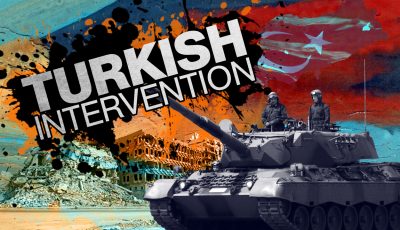Video: Military Intervention in Libya and Turkey’s Grand Game in the Eastern Mediterranean

During the past week, the situation significantly escalated in Libya, with Turkey expanding its military involvement in the conflict.
In late November, Turkey signed with the Government of National Accord (GNA), which controls only a small part of northern Libya, deals on security cooperation and maritime jurisdiction. By this move Ankara, the main backer of the GNA and pro-GNA militants, tried to legalize its economic zone claims in the eastern Mediterranean and thus legalize its controversial drilling activities in the region. At the same time, Turkey sees its involvement in the Libyan conflict as a tool of expansion of its own influence in the entire region.
The Turkish military already deployed Bayraktar TB2 combat drones to the self-proclaimed Turkish Republic of Northern Cyprus, and is reportedly preparing to deploy troops in Libya. Turkish intelligence and advisers already operate in the war-torn country. So, the security deal with the GNA is just a formal move to legalize and expand the military presence.
The Turkish actions caused a strong negative reaction from its regional competitors like Greece, Egypt and the UAE.
On December 12, the Libyan National Army (LNA), backed by the UAE, Egypt and to some extent by Russia, resumed its advance on the GNA-held city of Tripoli. The LNA led by Field Marshal Khalifa Haftar controls most of Libya and so far has demonstrated itself as the only force that can restore the Libyan territorial integrity and statehood. It describes the Tripoli advance as an anti-terrorism operation because of the GNA’s open links with radical militant groups, including those affiliated with al-Qaeda.
Currently, LNA forces are storming the southern suburbs of Tripoli. If Ankara sends troops to support the existence of the GNA and secure its recent legal gains, the situation in Libya will escalate rapidly. Therefore, Turkey, Egypt and the UAE will find themselves in a state of the indirect military conflict in Northern Africa.
*
Note to readers: please click the share buttons above or below. Forward this article to your email lists. Crosspost on your blog site, internet forums. etc.
Support South Front in its endeavors. If you’re able, and if you like our content and approach, please support the project. Our work wouldn’t be possible without your help: PayPal: [email protected] or via: http://southfront.org/donate/ or via: https://www.patreon.com/southfront

